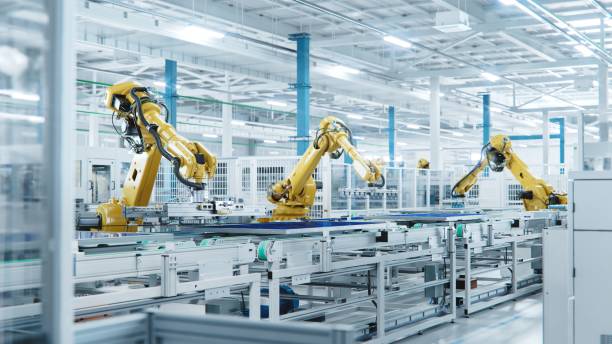Shaping the Future of Industrial Operations: The Role of Advanced Analytics
There is a notable shift happening in the world of business and industry. The advent of advanced analytics is transforming the way companies operate, enabling them to make more informed decisions, optimize their operations, and drive growth. This article delves into the topic, discussing the role of advanced analytics in industrial operations, its benefits, challenges, and impact on business trends.

The Emergence of Advanced Analytics
Advanced analytics, in its essence, refers to the extensive use of data, statistical algorithms and machine learning techniques to identify the likelihood of future outcomes based on historical data. From being a mere concept in the early 2000s, it has now become a key strategic tool for many businesses. The journey of advanced analytics is marked by significant industry developments such as the rise of big data, the availability of sophisticated analytical tools, and the increasing emphasis on data-driven decision making.
The Current Landscape: Business Trends and Insights
In the present scenario, companies are leveraging advanced analytics to gain a competitive edge. They are using it to understand customer behavior, streamline operations, and predict market trends. According to a study by the International Institute of Analytics, businesses that use advanced analytics are likely to outperform their competitors who don’t by a significant margin. Moreover, experts predict that the use of advanced analytics will only grow in the future, given its potential to deliver actionable insights and drive business growth.
The Impact of Advanced Analytics on Industrial Operations
Advanced analytics is reshaping the landscape of industrial operations in several ways. It is enabling companies to predict equipment failures, thereby reducing downtime and maintenance costs. It is also helping businesses optimize their supply chain by predicting demand and managing inventory more effectively. However, the adoption of advanced analytics is not without its challenges. These include the need for skilled personnel, the complexity of data management, and concerns about data privacy and security.
The Benefits and Challenges of Advanced Analytics
While the benefits of advanced analytics are numerous, there are also challenges that businesses must address. One of the most significant benefits is improved decision-making. Advanced analytics allows companies to make data-driven decisions, which are typically more accurate and efficient. However, implementing advanced analytics requires substantial investment in technology and talent. There can also be resistance from employees who are used to traditional ways of working. Despite these challenges, the potential benefits of advanced analytics make it a worthwhile investment.
Practical Insights on Advanced Analytics
- Start with a clear goal: Before implementing advanced analytics, have a clear understanding of what you hope to achieve. This could be improving operational efficiency, increasing customer satisfaction, or boosting sales.
- Invest in the right tools and talent: Advanced analytics requires sophisticated tools and skilled personnel. Therefore, invest in quality analytical tools and hire or train employees who can effectively use them.
- Prioritize data security: With the increasing use of advanced analytics, data security has become more important than ever. Make sure to have robust data security measures in place.
- Be patient: Implementing advanced analytics is a long-term process. It takes time to collect and analyze data, and even more time to see tangible results. So, be patient and persistent.
In conclusion, advanced analytics is revolutionizing industrial operations, offering a wealth of opportunities for businesses to improve their performance and gain a competitive edge. While the journey towards adopting advanced analytics can be challenging, the benefits it offers are too substantial to ignore. As we move forward, it will be exciting to see how advanced analytics will continue to shape the future of business and industry.




